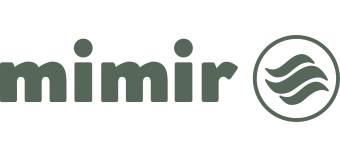
Vacatures geplaatst door Universiteit Twente
Mimir verzorgt het geautomatiseerde beheer van vacatures op vacaturebanken voor Universiteit Twente.
Laatste vacatures
PhD Position in Software Security
In this PhD project, we intend to research automated techniques to analyse, exploit, and patch software vulnerabilities, after the detection phase. In fact, current tools, such as fuzzers, detect more potential flaws than organisations can fix. We plan to design and develop automated techniques to holistically analyse discovered vulnerabilities, assess their causes and risks, and prioritise the critical ones. Unlike prior work, we analyse infrastructures as a whole, instead of individual applications, allowing for prompt, effective mitigation and reducing costs.
As the prospective PhD candidate, you will be appointed for a period of four years, and you are expected to perform high-quality research that gets published at some of the top security conferences and implement open-source research prototypes that the community can benefit from. The SCS group is internationally recognized in the broad areas of systems, AI, and data security and is unique for its collaborative and friendly atmosphere, in which researchers have considerable freedom in picking their projects and receive substantial support from supervisors and colleagues. We publish in top-tier conferences to maximize our visibility and impact, and we can guide you toward becoming a top researcher and boosting your CV. Besides, during the PhD, you will have the opportunity to broaden your knowledge and network by joining international exchange programs, participating in national and international conferences, and visiting other research institutes and universities worldwide.
AcademicTransfer
1 sollicitatie
0 views
04-02-2026 Universiteit Twente
Full professor – XUV Optics
The XUV Optics groups at the University of Twente is internationally recognised for its work on the physical understanding and development of ultra-thin single and multilayer optical systems for X-ray and EUV applications. The group operates in a strong research environment, supported by advanced infrastructure for thin film deposition and state-of-the-art analysis facilities.
As Full Professor (Chair), you will define and drive a forward-looking scientific agenda in XUV/EUV optics and metrology, light- and plasma-matter interaction, surface science or closely related fields. You will strengthen the scientific foundations of the group, expand its international visibility, and develop new research directions and collaborations that build on, but are not limited to, existing strengths and partnerships in academia and industry.
You will build and lead an externally funded research programme and contribute to the international research community through scientific leadership. You will actively acquire competitive funding and position the chair within national and international research programs.
You contribute to the Bachelor’s and Master’s programs of the Faculty of Science and Technology and supervise thesis projects and PhD researchers. Together with colleagues, you help shape a coherent and future-oriented educational portfolio in the field of semiconductor equipment and high-tech materials, including educational collaborations and lifelong learning initiatives.
As a chair holder and group leader, you foster an open, supportive, safe and inclusive working environment. You value open communication, support sustainable talent development, and create space for diverse perspectives and career paths within your team.
We particularly encourage applications from candidates who bring diverse perspectives and experiences, and from those who may not yet meet all criteria but are motivated to further develop themselves in this role.
AcademicTransfer
0 sollicitaties
0 views
04-02-2026 Universiteit Twente
Elektrotechnicus Onderwijsontwikkeling en Outreach
In deze functie lever je hier een inhoudelijke bijdrage aan door het ontwikkelen, vernieuwen en afstemmen van technisch onderwijs- en lesmateriaal binnen het domein van Electrical Engineering.
Je ontwikkelt cursusmateriaal voor Electrical Engineering, met ruimte voor spin-offprojecten richting aanpalende chipgerelateerde opleidingen. In samenwerking met Pre-U werk je aan het ontwikkelen en/of aanpassen van IC-designpakketten. Daarnaast draag je bij aan de ontwikkeling van aansprekende minoren en onderwijsmodules die gericht zijn op instroom, zij-instroom en omscholing binnen het halfgeleiderdomein.
Naast je rol in de onderwijsontwikkeling lever je een bijdrage aan outreachactiviteiten, met als doel het vakgebied Electrical Engineering zichtbaarder en aantrekkelijker te maken voor scholieren tot studenten en docenten. Je denkt mee over de inhoudelijke invulling van deze activiteiten en ontwikkelt bijpassend les- en demonstratiemateriaal.
Het ontwikkelen van fysieke en digitale lesmaterialen en outreach activiteiten doe je in teamverband, in samenwerking met collega’s binnen en buiten de faculteit. Het aansturen van studentassistenten kan onderdeel uitmaken van het takenpakket. De functie biedt ruimte voor eigen inzichten en initiatief in de meest effectieve inzet van tijd en middelen, gebaseerd op ervaring en/of onderwijskundige kennis.
AcademicTransfer
0 sollicitaties
0 views
04-02-2026 Universiteit Twente
Research Technician in Molecules & Materials
The research technician will be involved in current research topics, which include activities such as, among others, the synthesis of new building blocks for self-assemblies, molecules for surface functionalization and nanoscale and organic materials; analysis of such materials. The technician will also be involved in the support and maintenance of equipment, support of the NMR facility, and other general tasks for the department. The technician will also be involved in education (training of students and their supervision in practicals).
AcademicTransfer
3 sollicitaties
0 views
02-02-2026 Universiteit Twente
PhD Position JUST FUTURES: ReStor(y)ing (Un)just Land-Water Relationships Through Art-activism
You will develop a ‘rurban’ lens that examines past, present, and future rural-urban (dis)connections in the context of different cases of land-water relationships, including areas with recent (Twente region) and longer (Aruba) histories of experiencing water scarcity. By engaging with environmental art-activism, the project will "re-story" land-water relationships and potential rurban futures through the development of situated narratives that bring to the fore different more-than-human voices, including those often marginalised. To this end, you will develop an approach to engage humans and more-than-humans as actors, participants, stake- and knowledge holders (e.g., rivers, animals, microorganisms, fish, future generations, technology), and collaborate with artists and artistic residencies. Moreover, you will explore ways of harnessing the potential of art-activism for climate justice. Within the JUST ART project, collaborations are envisioned with diverse societal and cultural partners to support creative dissemination and public engagement strategies adapted to context. These may include an event (e.g., exhibition, performance, installation) at Rijksmuseum Twente and pop-up events at specific case study locations or in cultural / community centres to connect with local stakeholders, in Twente and Aruba.
While these are the overall objectives for the PhD position, the exact scope of the research is open and can be refined by the PhD candidate together with the supervisory team and in collaboration with the wider JUST ART community. This includes academic partners as well as a network of artists, cultural institutions and societal partners across the Kingdom of the Netherlands.
This PhD position is part of JUST ART. Creating Common Grounds for Climate Justice Through Artistic Research - a six-year project on climate justice and artistic research in the Caribbean and European parts of the Kingdom of the Netherlands. The project is funded by the Dutch Research Council (NWO) and led by the University of Groningen. It offers 10 fully funded PhD Positions at six universities in collaboration with Netherlands Organisation for Applied Scientific Research (TNO) and four universities of applied sciences. More information and links to all 10 PhD positions: www.justart.info
The complexity and scale of the climate crisis are overwhelming. Artistic practice and artistic research can open up new ways of understanding the intersectional dimensions of this crisis and empower people to act. Bringing together artists, researchers, campaigners and communities in rural and urban regions, JUST ART aims to cultivate diverse strategies of climate justice through artistic research and creative practice.
JUST ART PhD candidates will generate new knowledge and critically assess approaches that integrate scientific insights with artistic research to address climate justice. JUST ART PhDs will study and develop concrete cases to learn how art and artistic research can be embedded in ongoing and emerging work on climate justice. They will enhance expertise and skills to take artistic and art-based transformative action on climate justice and will contribute to theoretical frameworks, common methods, educational toolkits and knowledge sharing platforms in co-creation with project partners.
AcademicTransfer
6 sollicitaties
0 views
02-02-2026 Universiteit Twente


